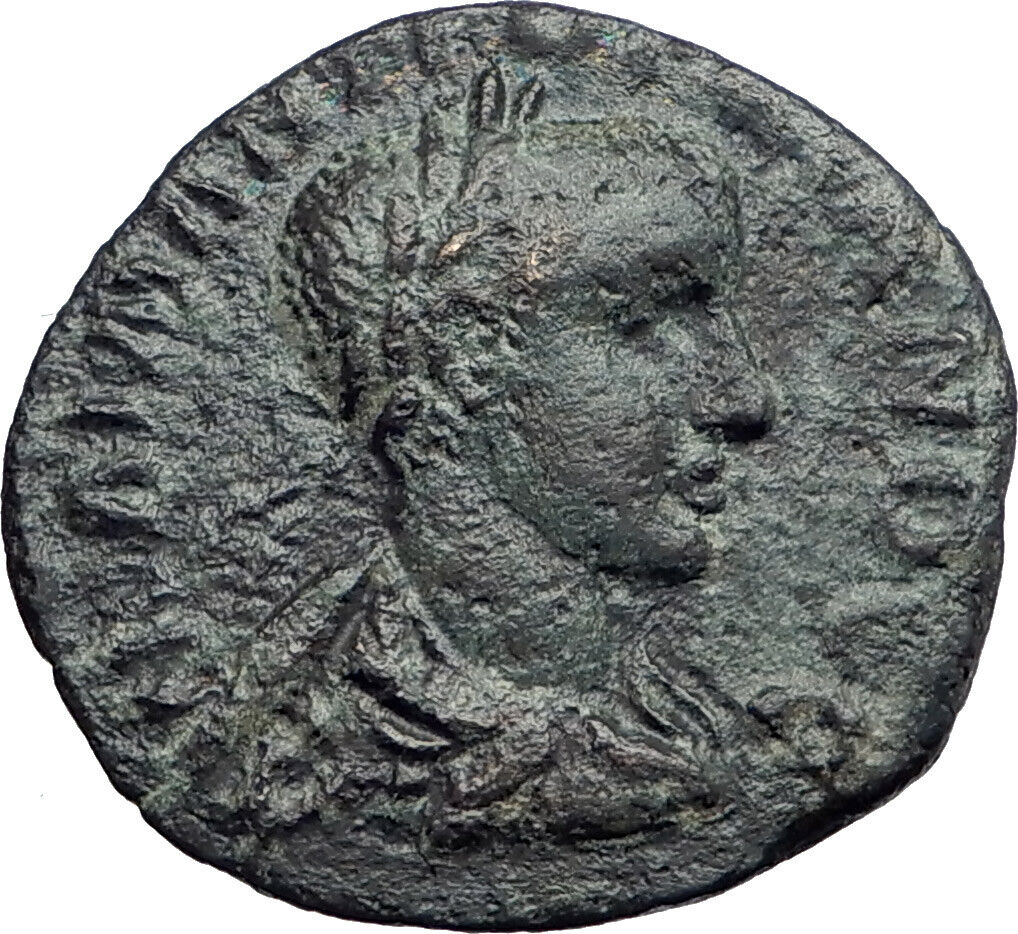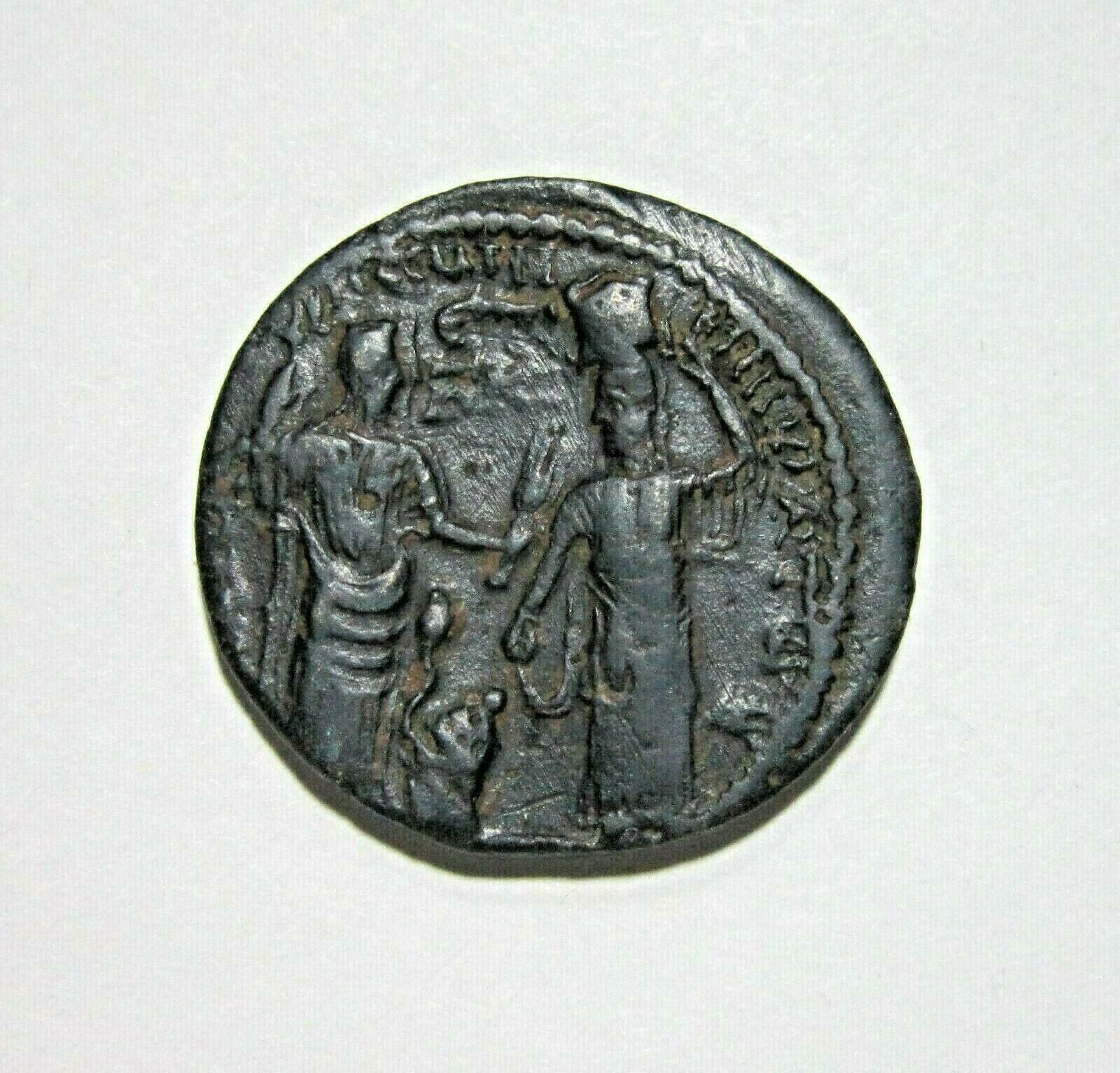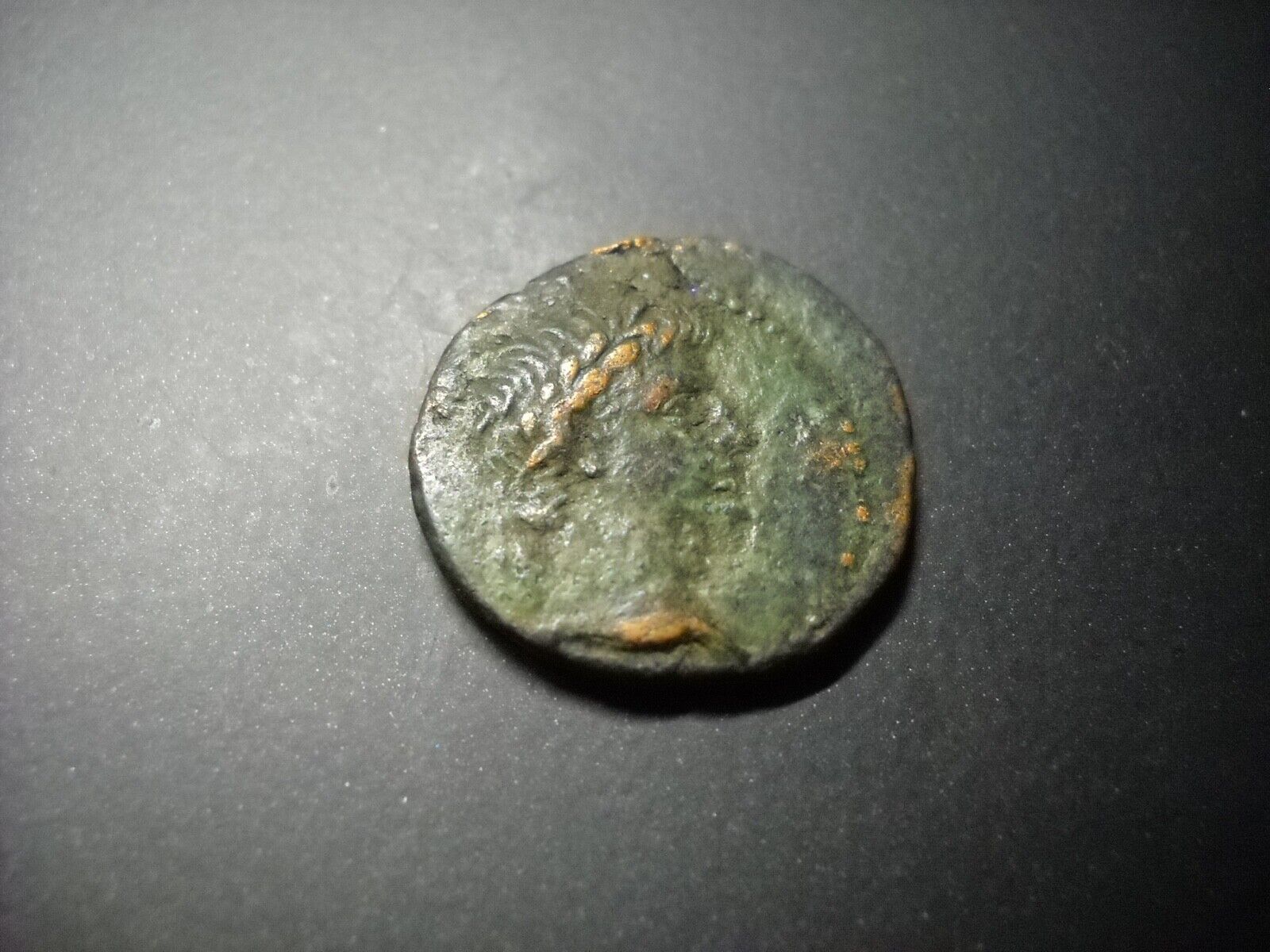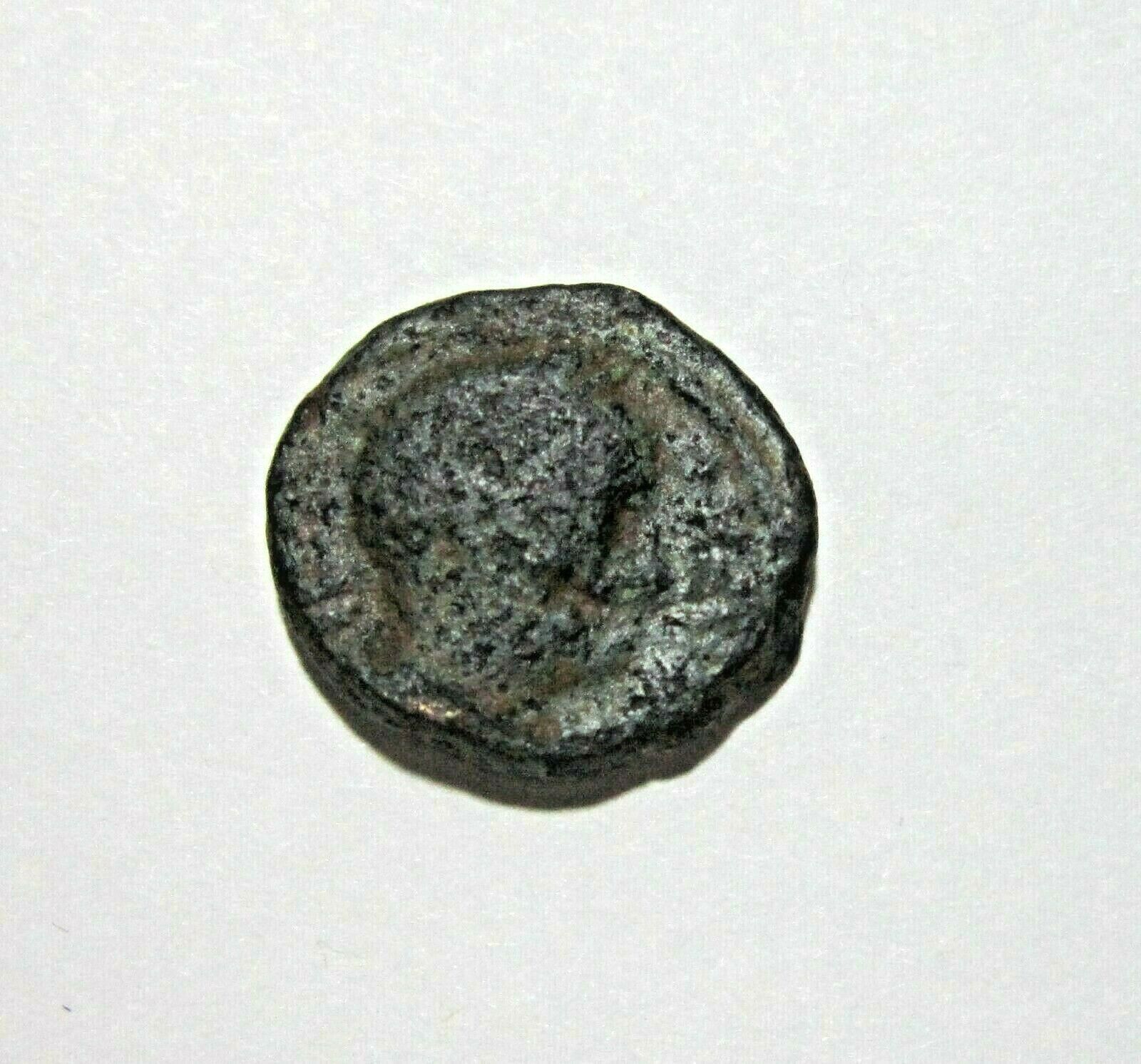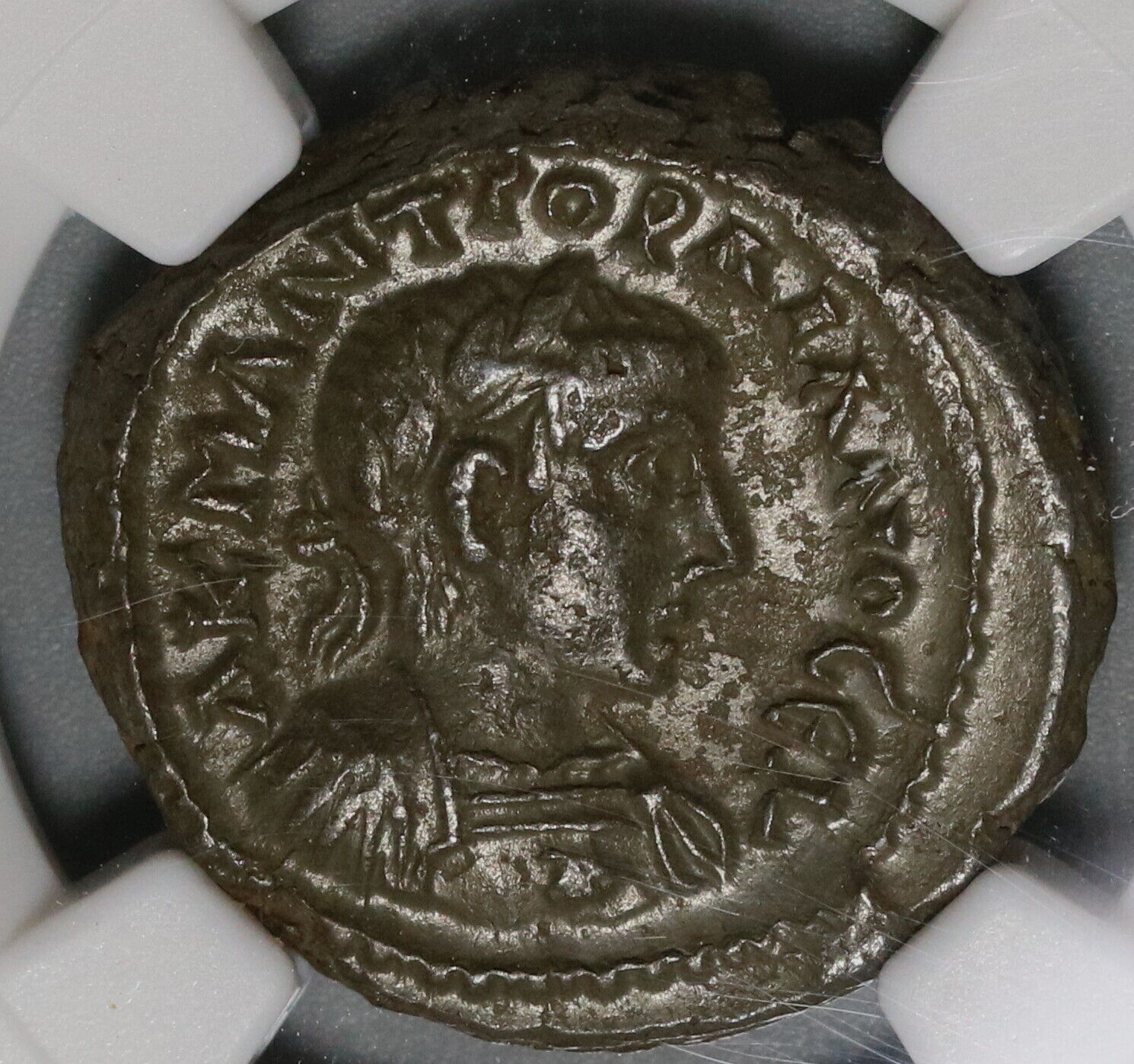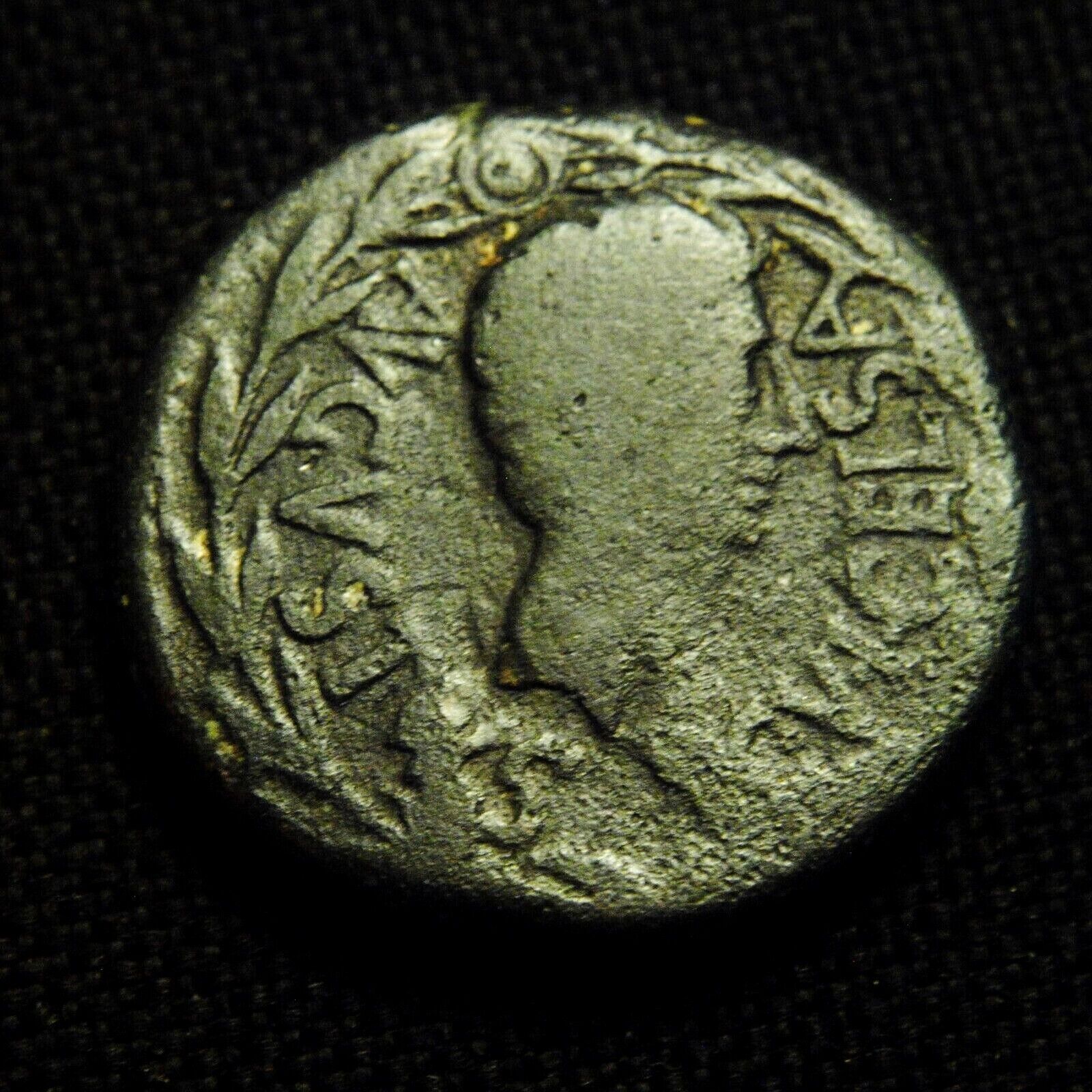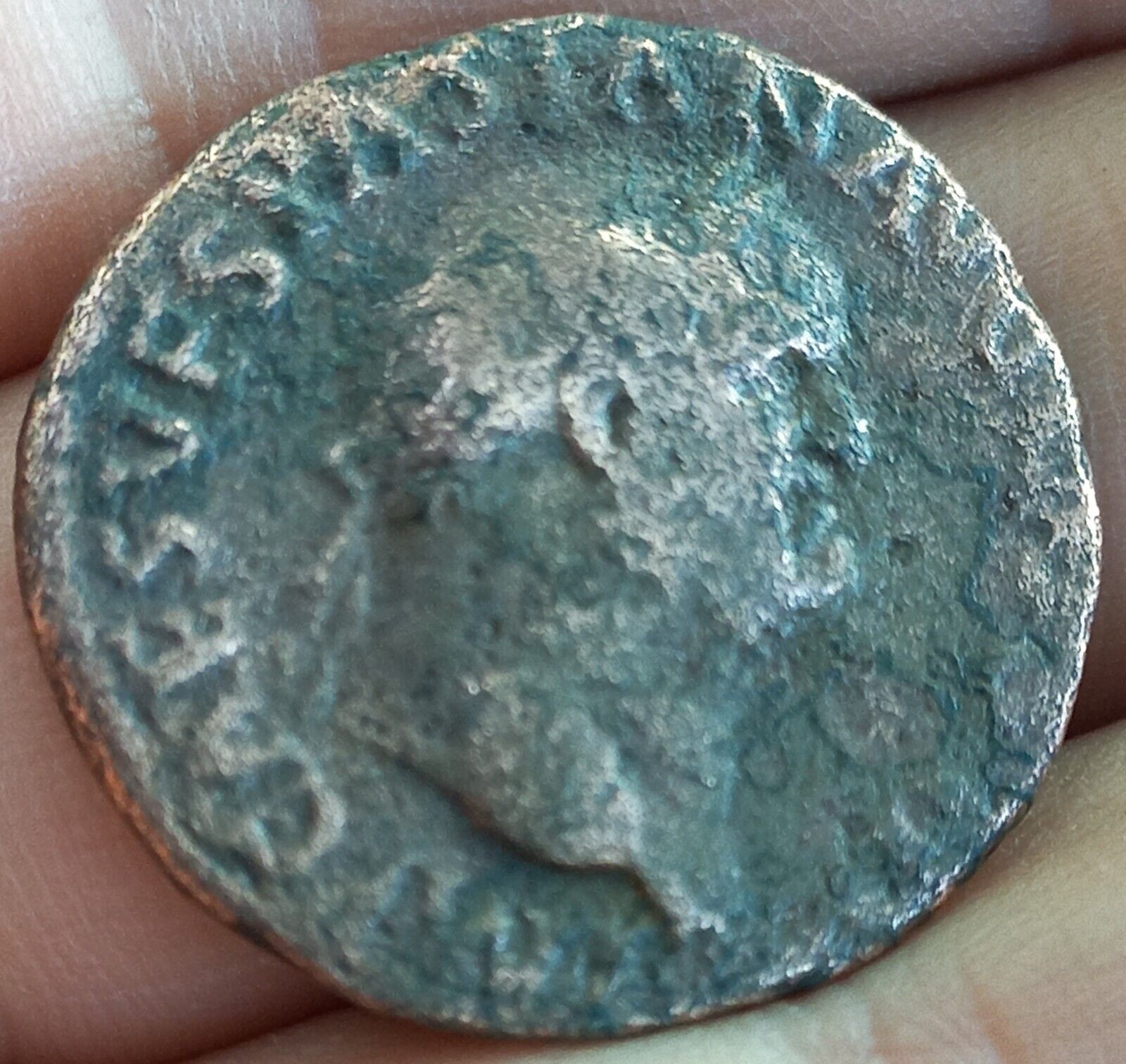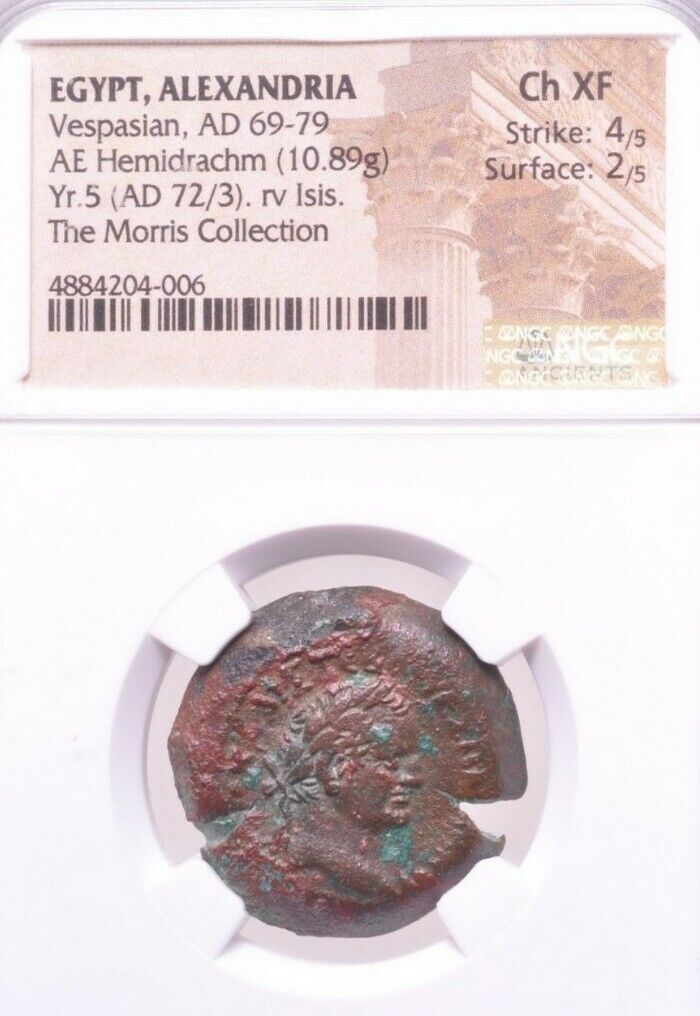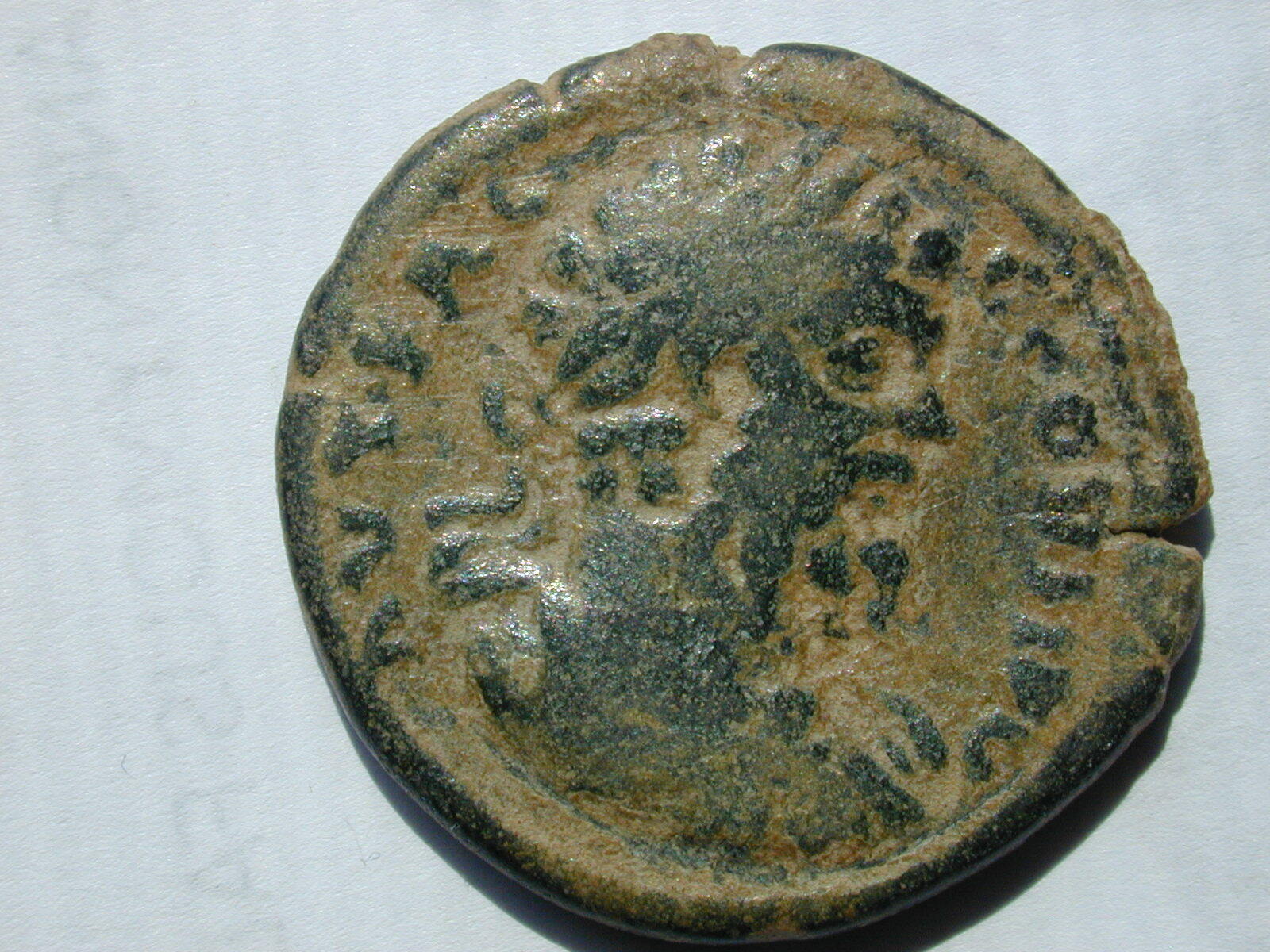-40%
GORDIAN III 244AD Caesarea Cappadocia Grain Ears Ancient Roman Coin i43619
$ 104.96
- Description
- Size Guide
Description
Item:i43619
Authentic Ancient Roman Coin of:
Gordian III
-
Roman Emperor
: 238-244 A.D. -
Bronze 23mm (5.65 grams) of
Caesarea
in
Cappadocia
Reference: Sear GIC 3778; BMC 346-348
AV. KAI. M. ANT.
ΓΟΡΔΙΑΝΟC, Laureate, draped and cuirassed bust right.
MHTP. KAI. B. NЄ., Six ears of corn, bound together; in lower field, ЄT.-Z (= regnal year 7 = A.D. 244).
You are bidding on the exact item pictured, provided with a Certificate of Authenticity and Lifetime Guarantee of Authenticity.
Kayseri
(
Ottoman Turkish
: قیصریه;
Greek
:
Καισάρεια
/
Kaisareia
;
Latin
:
Caesarea Mazaca
), named in
classical antiquity
as
Mazaka
or
Mazaca
,
Eusebia
,
Caesarea Cappadociae
, and later as
Kaisariyah
, is a large and industrialized
city
in
Central Anatolia
,
Turkey
. It is the seat of
Kayseri Province
.
Kayseri has been a continuous settlement since 3000 BC. The city has always been a vital trade center since it is located on major trade routes, particularly along what was called the
Great Silk Road
.
Kültepe
, one of the oldest cities in
Asia Minor
, lies nearby.
As
Mazaca
, the city served as the residence of the kings of
Cappadocia
. In ancient times, it was on the crossroads of the trade routes from
Sinope
to the
Euphrates
and from the
Persian Royal Road
that extended from
Sardis
to
Susa
. In
Roman
times, a similar route from
Ephesus
to the East also crossed the city.
The city's name was changed to
Eusebia
in honor of the Cappadocian king
Ariathes V
(163–130 BC). The name was changed again to
Caesarea
by the last Cappadocian King
Archelaus
or perhaps by
Tiberius
.
Caesarea stood on a low spur on the north side of
Mount Erciyes
(
Mons Argaeus
in ancient times). The site, now called the old town, diplays only a few traces from the old town. It was destroyed by the
Sassanid
king
Shapur I of Persia
after his victory over the
Emperor Valerian I
in AD 260. At the time it was recorded to have around 400,000 inhabitants. In the 4th century, bishop
Basil
established an ecclesiastical centre on the plain, about one mile to the northeast, which gradually supplanted the old town. A portion of Basil's new city was surrounded with strong walls and turned into a fortress by
Justinian
.
Marcus Antonius Gordianus Pius
(
January 20
,
225
–
February 11
,
244
), known in
English
as
Gordian III
,
was
Roman Emperor
from 238 to 244. Gordian was the son of
Antonia Gordiana
and his father was an unnamed Roman Senator who died before 238. Antonia Gordiana was the daughter of Emperor
Gordian I
and younger sister of Emperor
Gordian II
. Very little is known on his early life before becoming Roman Emperor. Gordian had assumed the name of his maternal grandfather in 238.
Following the murder of emperor
Alexander Severus
in Moguntiacum (modern
Mainz
), the capital of the
Roman province
Germania Inferior
,
Maximinus Thrax
was acclaimed emperor, despite strong opposition of the
Roman senate
and the majority of the population. In response to what was considered in Rome as a rebellion, Gordian's grandfather and uncle, Gordian I and II, were proclaimed joint emperors in the
Africa Province
. Their revolt was suppressed within a month by Cappellianus, governor of
Numidia
and a loyal supporter of Maximinus Thrax. The elder Gordians died, but public opinion cherished their memory as peace loving and literate men, victims of Maximinus' oppression.
Meanwhile, Maximinus was on the verge of marching on Rome and the Senate elected
Pupienus
and
Balbinus
as joint emperors. These senators were not popular men and the population of Rome was still shocked by the elder Gordian's fate, so that the Senate decided to take the teenager Gordian, rename him Marcus Antonius Gordianus as his grandfather, and raise him to the rank of
Caesar
and imperial heir.
Pupienus
and
Balbinus
defeated Maximinus, mainly due to the defection of several
legions
, namely the
Parthica
II
who assassinated Maximinus. But their joint reign was doomed from the start with popular riots, military discontent and even an enormous fire that consumed Rome in June 238. On
July 29
, Pupienus and Balbinus were killed by the
Praetorian guard
and Gordian proclaimed sole emperor.
Rule
Due to Gordian's age, the imperial government was surrendered to the aristocratic families, who controlled the affairs of Rome through the senate. In 240,
Sabinianus
revolted in the African province, but the situation was dealt quickly. In 241, Gordian was married to Furia Sabinia
Tranquillina
, daughter of the newly appointed praetorian prefect,
Timesitheus
. As chief of the Praetorian guard and father in law of the emperor, Timesitheus quickly became the
de facto
ruler of the Roman empire.
In the 3rd century, the Roman frontiers weakened against the Germanic tribes across the
Rhine
and
Danube
, and the
Sassanid
kingdom across the
Euphrates
increased its own attacks. When the Persians under
Shapur I
invaded
Mesopotamia
, the young emperor opened the doors of the
Temple of Janus
for the last time in Roman history, and sent a huge army to the East. The Sassanids were driven back over the Euphrates and defeated in the
Battle of Resaena
(243). The campaign was a success and Gordian, who had joined the army, was planning an invasion of the enemy's territory, when his father-in-law died in unclear circumstances. Without Timesitheus, the campaign, and the emperor's security, were at risk.
Marcus Julius Philippus, also known as
Philip the Arab
, stepped in at this moment as the new Praetorian Prefect and the campaign proceeded. In the beginning of 244, the Persians counter-attacked. Persian sources claim that a battle was fought (
Battle of Misiche
) near modern
Fallujah
(
Iraq
) and resulted in a major Roman defeat and the death of Gordian III
[1]
. Roman sources do not mention this battle and suggest that Gordian died far away, upstream of the Euphrates. Although ancient sources often described Philip, who succeeded Gordian as emperor, as having murdered Gordian at Zaitha (Qalat es Salihiyah), the cause of Gordian's death is unknown.
Gordian's youth and good nature, along with the deaths of his grandfather and uncle and his own tragic fate at the hands of another usurper, granted him the everlasting esteem of the Romans. Despite the opposition of the new emperor, Gordian was deified by the Senate after his death, in order to appease the population and avoid riots.
Frequently Asked Questions
How long until my order is shipped?
Depending on the volume of sales, it may take up to 5 business days for shipment of your order after the receipt of payment.
How will I know when the order was shipped?
After your order has shipped, you will be left positive feedback, and that date should be used as a basis of estimating an arrival date.
After you shipped the order, how long will the mail take?
USPS First Class mail takes about 3-5 business days to arrive in the U.S., international shipping times cannot be estimated as they vary from country to country. I am not responsible for any USPS delivery delays, especially for an international package.
What is a certificate of authenticity and what guarantees do you give that the item is authentic?
Each of the items sold here, is provided with a Certificate of Authenticity, and a Lifetime Guarantee of Authenticity, issued by a world-renowned numismatic and antique expert that has identified over 10000 ancient coins and has provided them with the same guarantee. You will be quite happy with what you get with the COA; a professional presentation of the coin, with all of the relevant information and a picture of the coin you saw in the listing.
Compared to other certification companies, the certificate of authenticity is a -50 value. So buy a coin today and own a piece of history, guaranteed.
Is there a money back guarantee?
I offer a 30 day unconditional money back guarantee. I stand behind my coins and would be willing to exchange your order for either store credit towards other coins, or refund, minus shipping expenses, within 30 days from the receipt of your order. My goal is to have the returning customers for a lifetime, and I am so sure in my coins, their authenticity, numismatic value and beauty, I can offer such a guarantee.
Is there a number I can call you with questions about my order?
You can contact me directly via ask seller a question and request my telephone number, or go to my About Me Page to get my contact information only in regards to items purchased on eBay.
When should I leave feedback?
Once you receive your order, please leave a positive. Please don't leave any negative feedbacks, as it happens many times that people rush to leave feedback before letting sufficient time for the order to arrive. Also, if you sent an email, make sure to check for my reply in your messages before claiming that you didn't receive a response. The matter of fact is that any issues can be resolved, as reputation is most important to me. My goal is to provide superior products and quality of service.
